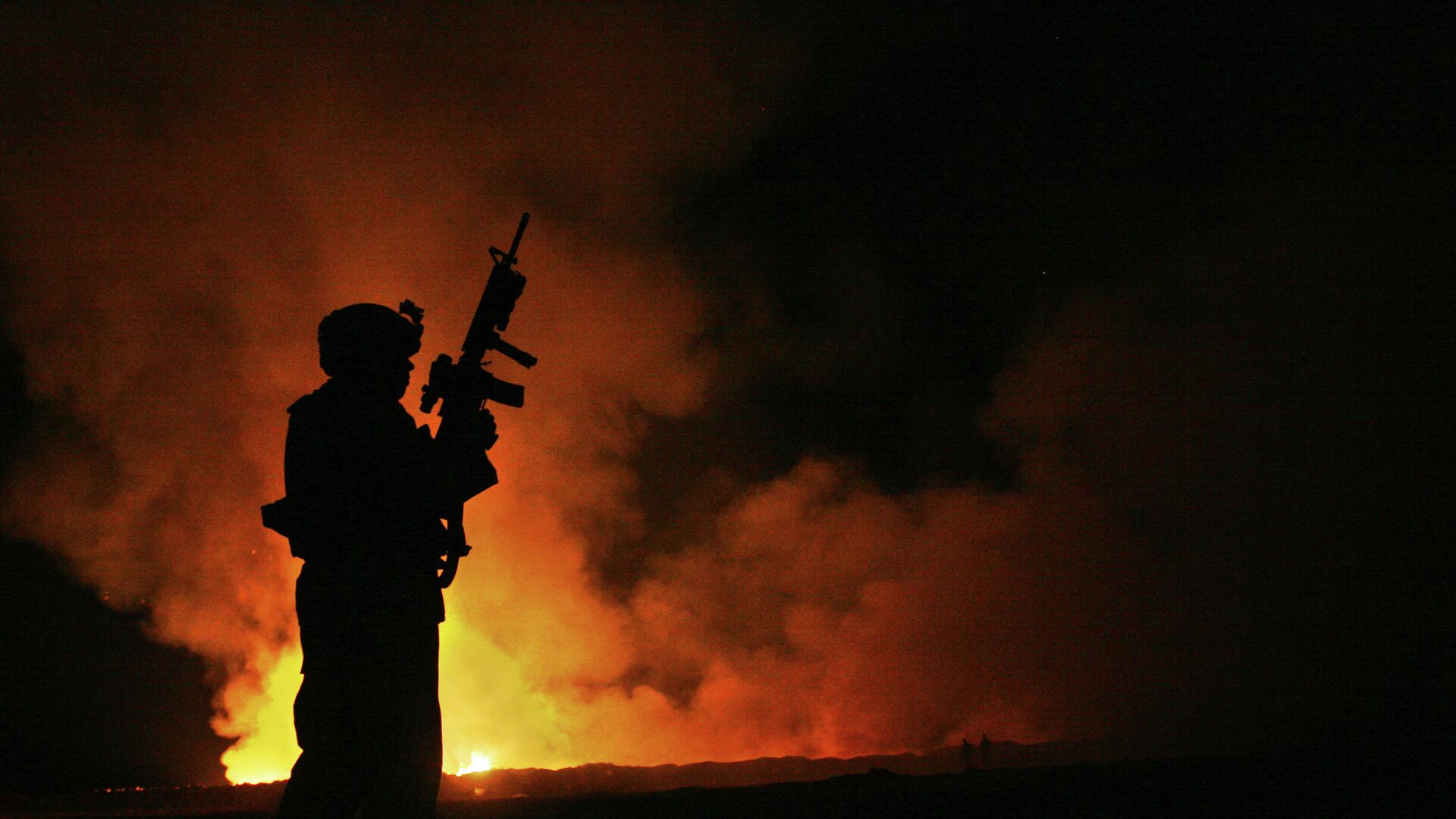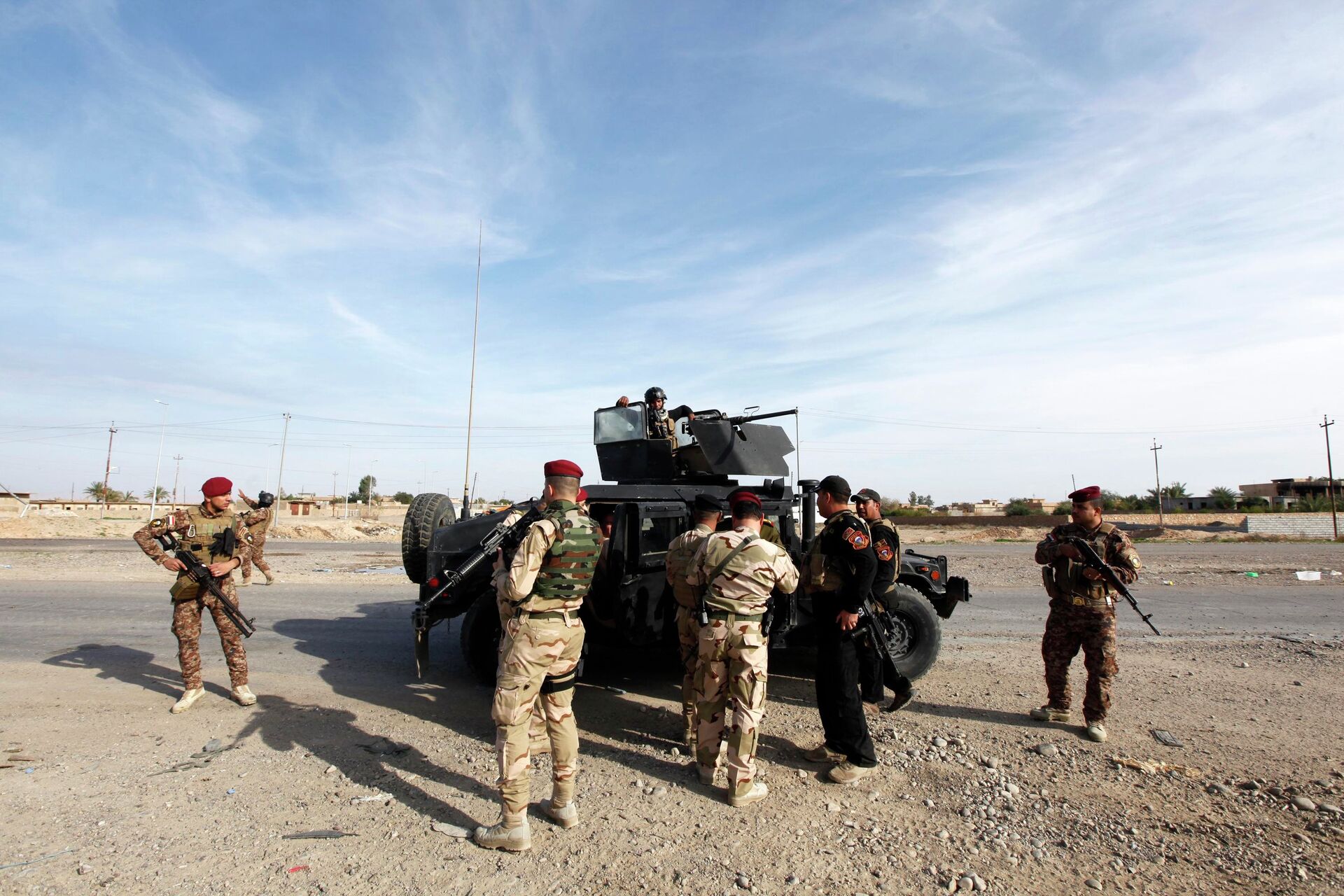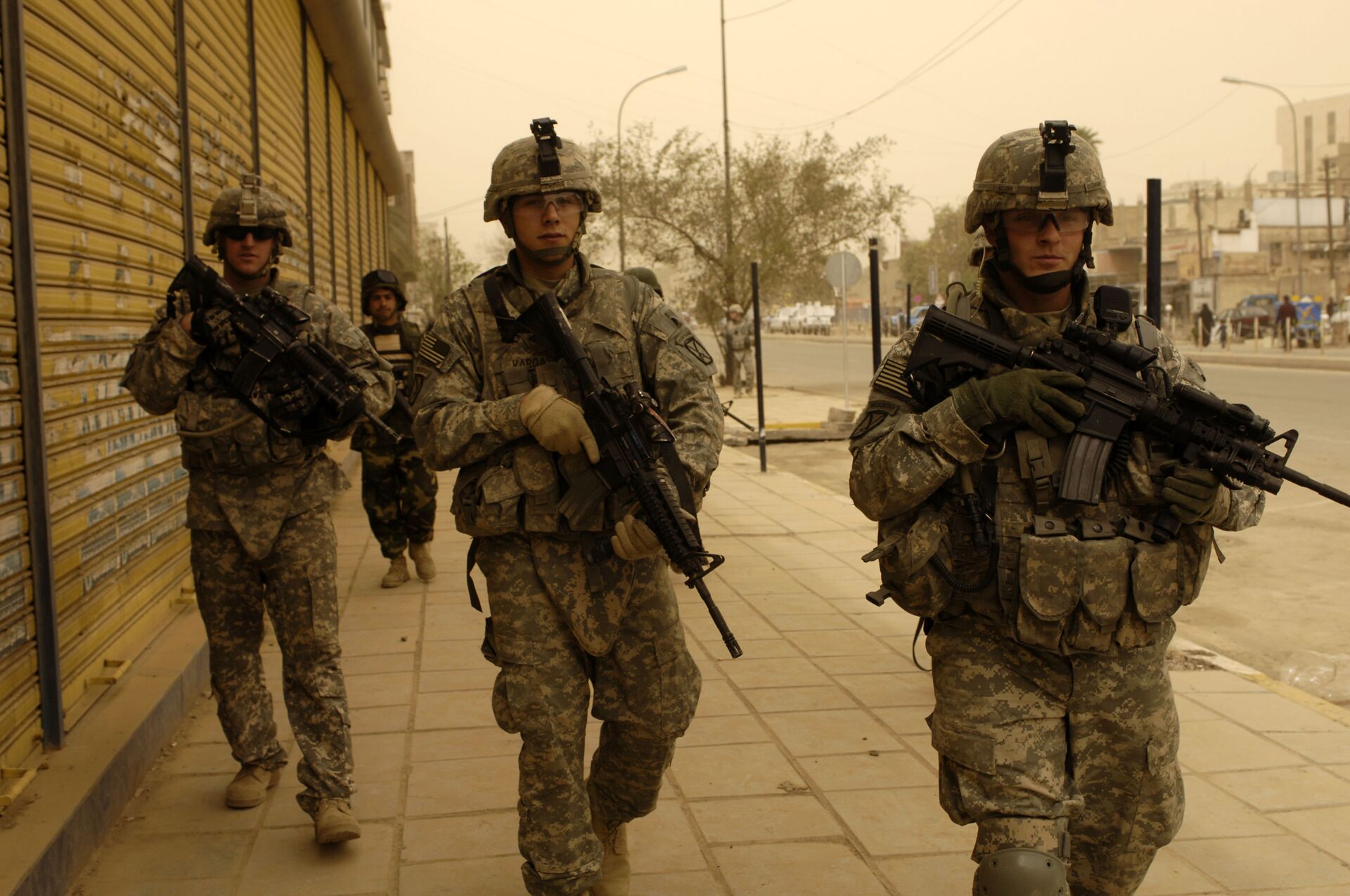US Soldiers to Remain in Iraq Despite Official Pullout, But Will It Stabilise the War-Torn Nation?
11:14 GMT 28.12.2021 (Updated: 09:05 GMT 10.02.2023)

© USMC/Cpl. Samuel Corum
Subscribe
Despite US soldiers being stationed in Iraq, working as advisers and trainers, their presence only aggravates the situation, sparking stronger resistance from Daesh* and some militias like the Popular Mobilisation Forces, believes a local politician.
On 9 December, the United States officially ended its combat mission in Iraq, thus realising President Joe Biden’s July decision to pull American troops from the war-torn country.
At the height of its operations, Washington had some 170,000 soldiers stationed on Iraqi soil.
At the height of its operations, Washington had some 170,000 soldiers stationed on Iraqi soil.
Now the number of troops is estimated to be around 2,500, and are said to be in the country to "advise, assist, and enable" Iraqi security forces.
Change of Status
Saad Al Mutalibi, a Baghdad-based independent politician, is certain that the move to end the combat mission was orchestrated to decrease the pressure being applied on the government of Prime Minister Mustafa Al Kadhimi and as an attempt to appease a public that has grown tired of a foreign military presence in their country.
"There is no pullout whatsoever. There is only a change of status instead, and these soldiers will now be serving as trainers and advisers", Al Mutalibi says.
Most of the dissatisfaction with the continuing presence of US troops, says Al Mutalibi, stems from the Shiite population of Iraq. The latter account for approximately 70 percent of the populace. The Sunni and the Kurdish groups in the country are largely supportive of their presence, and their main claim is that Washington has become an important player in maintaining Iraq's national security.
Factor of Destabilisation
Yet, the politician is far from being convinced by those claims, and he says that the American presence has been a major destabilising factor.
The American invasion of 2003 prompted a spike in terrorism activity in Iraq, something that eventually paved the way for the creation of Daesh*.
When Washington's military presence in Iraq was strong they could cope with the threat of the extremist group but now, when the numbers of troops are being reduced, Daesh has been rearing its head again and it will continue to do so until the last American soldier leaves Iraqi soil.
"The Americans are only increasing the power of Daesh. They are a part of the problem. Not a solution", said Al Mutalibi.
Yet, Daesh is not the only force that has been fighting the Americans in Iraq. Another has been some groups within the Popular Mobilisation Forces (PMF).
According to reports, between 2016 to 2017, the PMF included between 60 to 70 groups and boasted up to 140,000 fighters.
Most of those fighters are Shiites, and some of those groups are allegedly linked to Iran and its security apparatus, particularly the Iranian Revolutionary Guard Corps.

Members of the Iraqi security forces carry their weapons during an intensive security deployment on the outskirts of Baiji, north of Baghdad, December 8, 2014.
© REUTERS / Ahmed Saad
Although those forces have always been opposed to America's presence in Iraq, their behaviour has become bolder and more aggressive since the US assassinated Qasem Soleimani, the commander of Iran's Islamic Revolutionary Guard Corps. And that has only served to further destabilise the already fragile country. But Al Mutalibi believes that this confrontation between the US and pro-Iranian militias might be nearing an end.
On Monday, world powers resumed talks with Iran about its nuclear programme. No progress has been made yet but some experts have already voiced cautious optimism that a deal might still be reached.
If that happens, Al Mutalibi says "it will have a positive impact on Iraq".
"Iraq has always been a bargaining chip in the hands of the US in its negotiations with Iran. And I believe that if there is a deal, it will eventually bring Washington to completely pull out from this country".
*Daesh, also known as IS\ISIS\ISIL\Islamic State, is a terrorist group banned in Russia and many other nations.



